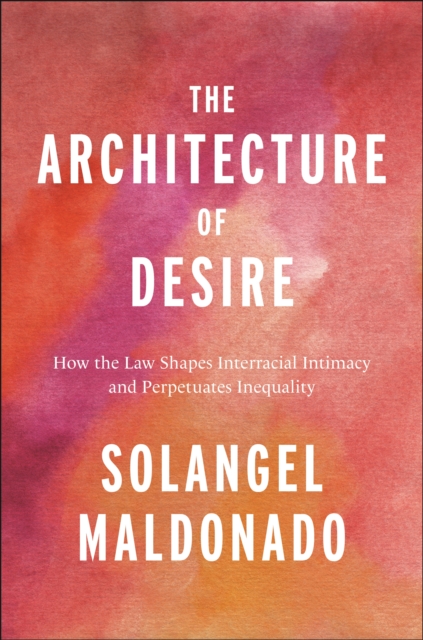
The Architecture of Desire : How the Law Shapes Interracial Intimacy and Perpetuates Inequality Hardback
by Solangel Maldonado
Part of the Families, Law, and Society series
Hardback
Description
Explores the reach of the law into our most personal and private romantic livesThe Architecture of Desire examines how the law influences our most personal and private choices—who we desire and choose as intimate partners—and explores the psychological, economic, and social effects of these choices.
Romantic preferences, as shaped by law, perpetuate segregation and subordination by limiting, on the basis of race, individuals’ prospects for marriage and marriage-like commitments, as well as economic and social mobility. The book begins by tracing the legacy of slavery, anti-miscegenation, segregation, and racially discriminatory immigration laws to show how this legal landscape facilitated the residential, economic, and social distance between racial and ethnic groups, which in turn continue to shape romantic preferences today.
Solangel Maldonado argues that the law further influences intimate choices by structuring the spaces within which individuals meet and interact via practices such as redlining, gentrification, and zoning. Maldonado includes studies of online and offline dating preferences to demonstrate that romantic predilections follow a gendered racial hierarchy in which Whites are at the top, African-Americans at the bottom, and—depending on skin tone—Asian-Americans and Latinos in the middle.
These preferences may be explicit, implicit, or both, but they are usually the result of stereotypes reflected in social and cultural norms.
Furthermore, since marriage confers substantial legal, economic, and social advantages, sexual racism further limits an individual’s opportunity to find a partner and reap these benefits.
Finally, the book proposes ways to minimize the law’s influence over who we desire, love, and bring into our families, such as changes to dating platforms as well as to housing, education, and transportation policies.
Information
-
Pre-Order
- Format:Hardback
- Pages:240 pages
- Publisher:New York University Press
- Publication Date:21/05/2024
- Category:
- ISBN:9781479812356
Information
-
Pre-Order
- Format:Hardback
- Pages:240 pages
- Publisher:New York University Press
- Publication Date:21/05/2024
- Category:
- ISBN:9781479812356






